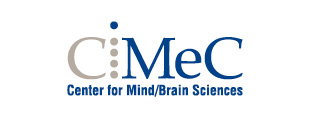Overview | Research directions | Members | Publications | Ongoing collaborations | Web
Overview
Meaning is the human faculty that lets us speak about worlds: the real world that we live in, but also possible worlds, the ones which we imagine and which range from the trivial ‘what shall we have for dinner tonight?’ to entire fictional universes.
The CALM group investigates how meaning emerges in humans, how it functionally corresponds to elements of worlds, and how it expresses itself in observable, speaker-dependent linguistic utterances. The main methodology of the group is computational modeling, which allows us to perform extensive testing of particular cognitive and linguistic hypotheses. We also routinely engage in the investigation of state-of-the-art Artificial Intelligence algorithms with a view to integrate them into our modeling activitites.
Research directions
- integration of symbolic and distributional approaches to meaning: in this line of research, we build models of semantics that account for a) human symbolic faculties, including the ability to refer to things in the world and to perform logical inferences; b) acquisition of semantic competence from raw linguistic utterances;
- speaker-specific meaning: meaning is not universal and variations are observed between speakers. The core of our work is to understand how such variations are compatible with successful communication;
- incremental learning: contrarily to many machine learning algorithms, humans revise their conceptual and world knowledge with each new experience they are exposed to. We investigate computational algorithms that are amenable to the same kind of online learning;
- small data learning: whilst much of machines learning is based on ‘big data’ algorithms, humans excel at small data. For instance, they can learn the meaning of a new word from a couple of exposures. We attempt to simulate this faculty with new kinds of algorithms;
- brain decoding: brain decoding is the process of translating brain images (e.g. fMRI) into words and sentences, thus providing some basic ‘mind-reading’ device. We investigate the quality of decoded representations for linguistic purposes.
Members
- Aurelie Herbelot, Principal Investigator
- Ludovica Pannitto, PhD student
- Alexandre Kabbach, PhD student (co-tutelle with the University of Geneva)
Publications
For a complete list see Aurelie Herbelot personal page
Ongoing collaborations
- Ann Copestake, University of Cambridge (UK)
- Katrin Erk, University of Texas at Austin (USA)
- Eugen Fischer, University of East Anglia (UK)
Web
© Carlos Andrés Reyes | Credits | The image has been cropped to fit the page.

